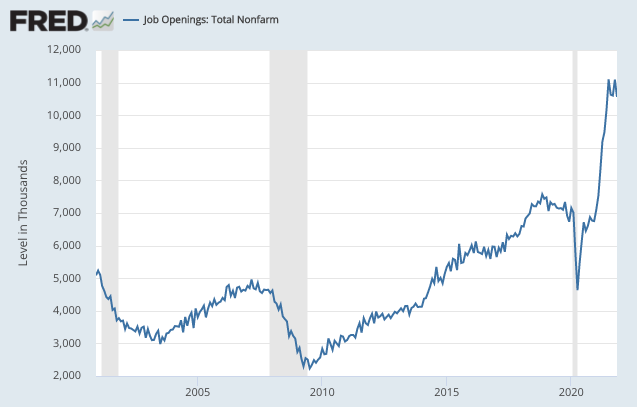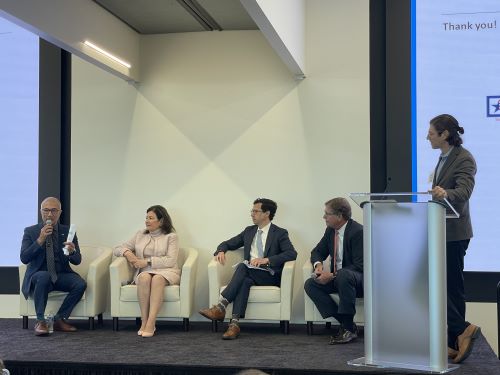Rational Middle Podcast Explores Impact of Immigration on Labor Market and Wages
 A recent Rational Middle podcast debunked the myth that immigration depresses the labor market opportunities of low-skilled native-born Americans. 2021 Nobel Prize winning Economist David Card and host Melissa Brannan discussed how economic studies and theories show that migration to the US has little to no negative impact on the wages and unemployment rates of Americans and helps to increase economic growth.
A recent Rational Middle podcast debunked the myth that immigration depresses the labor market opportunities of low-skilled native-born Americans. 2021 Nobel Prize winning Economist David Card and host Melissa Brannan discussed how economic studies and theories show that migration to the US has little to no negative impact on the wages and unemployment rates of Americans and helps to increase economic growth.
Card, who was awarded a Nobel Memorial Prize in Economic Sciences “for his empirical contributions to labor economics,” cited his 1990 study on The Impact of the Mariel Boatlift on the Miami Labor Market as evidence that migration does not decrease the wages of native-born Americans or increase their unemployment rate.
He explained that the Mariel Boatlift brought around 150,000 Cubans to Miami over a few months in 1980, increasing the workforce there almost instantly by 7%. Notably, the majority of these migrants were considered low-skilled. When comparing the wages in Miami to other comparable cities that had similar economic trends at the time (except for the large influx of migrants), Card found that the large increase in immigrants had “virtually no effect on the wages or unemployment rates of less skilled workers, even among Cubans who had immigrated earlier.”
Card also refuted Thomas Malthus’ Malthusian trap theory, which argued in 1798 that exponential population growth in a society would ultimately outpace a predicted linear growth of food supplies because each society had a limited amount of land with which to produce. Malthus thought that that a society’s average quality of life was directly correlated to the amount of land per person. For this reason, Malthus argued for population control and strict limits on reproduction. Malthusian theory was proven wrong by the exponential growth of technology, especially in the mid 20th century during the Green Revolution when technological innovations drastically increased agricultural production in many parts of the world.
Card pointed out the irony in the fact that although many economists and Americans accept the fact that the Malthusian theory does not apply to most parts of the economy, they still use it as an argument against immigration.
“If you have more people but you can build more machinery and technology, then you no longer have a Malthusian trap. We’re no longer tied to the land. If you have 20% more workers you can have 20% more machinery, so no one thinks in terms of the Malthusian trap anymore, except when it comes to immigration,” he said.
Card also added that population growth and concentration is often good for economic growth and innovation.
“On average big countries have higher wages, and many economists think it’s important to have a large economy to be successful. There are several fields of economics that are fundamentally looking at the benefits of concentrations of populations for increased knowledge and interactions,” he said.
Card also highlighted the value of immigrants in filling jobs across the skills spectrum where there are workforce shortages.
“It’s important not just to look at the number of migrants who come in and overall increases in the number of children in the economy but to look at their relative education and skills that they bring to the economy…Immigrants are different than natives in that they fill in a lot of gaps at the bottom of the labor market and at the top… I think what you’re going to see moving forward is more and more recognition that workers are not a surplus commodity that we need to get rid of, but rather something to valued, and I think it will eventually lead to increases in the value that we put on all types of work and not just CEOs and highly skilled scientists,” he said.
To learn more on these issues, listen to the Rational Middle Podcast Episode 106: The Real Economics of Immigration with David Card below. Also check out the free Rational Middle of Immigration Video Docuseries that examines more issues associated with the US immigration system.








